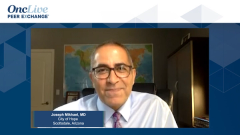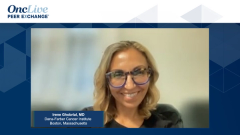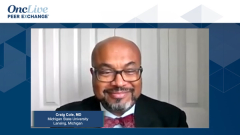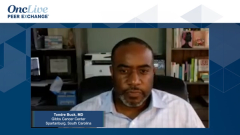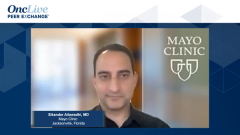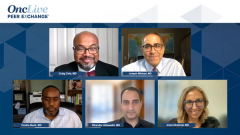
Addressing Healthcare Provider Bias in Multiple Myeloma Management
Joint consideration for physician bias in the management of multiple myeloma and how it can be addressed while treating patients belonging to racial and ethnic minority groups.
Episodes in this series

Transcript:
Joseph Mikhael, MD: Times of therapy is a problem. Access to specialized centers is a problem. Access to clinical trials, transplants, triplets and CAR T, which by the way, we haven't even had time to get into CAR T. But that's a challenge. You know, I read a statistic this last week that less than 3% of people who have had a CAR T of any background, leukemia, lymphoma, or myeloma, have a household income of less than $50,000. Very striking to see that kind of work. But lastly, the physician bias. And Craig, I'll start with you because you introduced it so well, but what other things? You mentioned engaging the family when you're making important decisions, making sure that everyone does undergo unconscious bias. That was part of the drive, by the way, making sure that people were trained in the area. What other practical things can our audience hear tonight that would make them more sensitive to these issues as they care for practice or care for patients in their practice?
Craig Cole, MD: We've touched on quite a few of those. But one big point is that we're all bicultural. That we have the culture we grew up with. We have the culture that we're surrounded by when we're at home. And then there's the majority culture with the medical culture. And when you add all these things that we talked about. You know, we have patients that have cancer. I mean, they're stressed, they're worried. They're frightened, they can't sleep. We ask them when they engage at the academic centers, or when they engaged the medical system. We ask them to take off that home hat and to put on this majority hat. That's a tough ask. That is a tough ask, to leave your culture behind, and engage another culture that you may not be very familiar with when you have cancer. I tell my fellows and I tell my residents and the doctors, engage that culture. Get a good social history on your patients. Get a good social history and try and meet them some way along that line with their culture. My grandmother loved banana pudding. She made awesome banana pudding. When I talk to other African American patients that come from the South, we talk about banana pudding. Because that makes them happy, it makes me happy, it builds rapport. And it just gives them comfort, little bit of comfort. You don't have to be black to appreciate banana pudding or peach cobbler. But that's a little thing you can do to help your patient.
Joseph Mikhael, MD: I'm going to suggest that the follow up meeting that we have for this panel, that we ensure that Craig appears with both banana pudding and peach cobbler because you, but any other thoughts around this, Tondre? Any thoughts from your perspective? Again, advice to the clinicians listening tonight around this notion of being able to be aware of these issues so they can deliver better care.
Tondre Buck, MD: Absolutely. As I touched on earlier, it's how we train fellows. We all have biases. That's a natural thing. But biases should not affect patient care. Those are the things that you have to eliminate. And I go back to the story. And this is a weird story when I was a medical student we were rounding and I was on psych ward, never forget this. And of course, where the attending physician was white. This Black guy said, you my mom houses a daycare in the daytime, but we have a party in the house at night. And my attendant said, there’s no way that's happening. That's criminal. And I thought to myself, got it. There’s a lady up the street from me who does it. They do the same thing all the time. My take home point on this is that it's OK to be biased. It's OK for these things but we shouldn't let that affect our patient care. And once again, what any of these do to these epidemiologically, it goes back to how we train physicians, how we train fellows, and how we train people to recognize this disease. And then remember, as a physician, our job is to not judge. Even though in our society now, everything is judgmental, our job is to not judge. Our job is to take care of patients and let all the other stuff go. And as we move along, you have to take the time and sit down because the ultimate goal is, I want this patient to live longer. And that's what I'm here for. And whatever it takes, and I can tell you being African American, being in the South, being black don’t always help. I've talked to patients about clinical trials. They tell me to go kick rocks like there's nothing. It's a matter of not being pressured by our being hued, not being pressured about it. Sit down and talk. Get to know your patients. And hopefully make them live longer.
Joseph Mikhael, MD: Well said my friend. The advice my father gave me the day I got accepted to medical school, where I even wrote an editorial about this last year, he said God made you with 2 ears and 1 mouth for a reason, listen more than you speak. Now granted he was a urologist. I don't know how much listening you do down there. But the point was it is so critical, and I appreciate that you made the comment about our trainees as well. I'm working right now with the National Medical association, creating a program. By the way, all of you are going to be a part of this program. We are going to have medical students paired with a myeloma physician to do a project in health disparities. To have them from that young early age within medical school to understand the notion of disparities, but also the diagnosis of myeloma.
Transcript edited for clarity.


